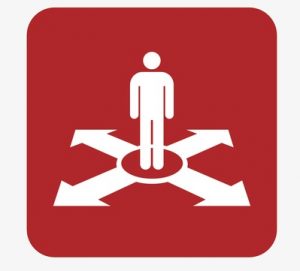The following is a recommended intervention identified by the TP-CKD programme for implementation with both staff and patients, to test the following question:
Can the use of intervention tools help to improve the knowledge, skills and confidence of patients with kidney disease to enable fuller participation in the management of their own health?
To explore other interventions identified by the programme, visit our Interventions Toolkit Home Page
Patient Decision Aids
Patient Decision Aids (PDAs) are information resources specifically designed to help people make decisions about difficult healthcare options. They help people to think about why one option may be better for them than another, increasing their awareness and understanding of the potential risks and benefits of different choices and the likely outcomes. They facilitate shared decision-making. They are intended to complement, not replace, the information and advice given by clinicians.

In essence the Decision Aid consists of five steps which guide patients through the process:
- Introduction – provides information about the health problem, treatment options and decisions which need to be made
- Comparing options – accurate information on the similarities and differences between treatment options
- Views of the individual – establishing an individual’s preconceptions about treatment options in relation to their specific circumstances
- Trade-offs – helping the individual think through trading-off the advantages and disadvantages of each option
- Decision – supporting the individual in choosing the best treatment option for them
What are the Benefits?
There is good evidence that PDAs improve people’s knowledge regarding options, and reduce their decisional conflict related to feeling uninformed and unclear about their personal values. PDAs may also stimulate people to take a more active role in decision making, and improve accurate risk perception (Stacey et al 2014).
How can Patient Decision Aids be used?
There are a number of types of PDAs available.
- The Yorkshire Dialysis Decision Aid (YoDDA) is produced as a booklet – the Dialysis Decision Aid Booklet. It can be downloaded or ordered from Kidney Research UK. Many patients share it with family members………I’d have to give it ten out of ten. It’s answered a lot of me questions…there’s lots of things that it’s told me there that I think I’ve put it down just to be me, and it isn’t, it’s part of the illness
- The National Patient Decision Aid for established renal failure (NHS Right Care) is an online PDA which patients can work through by themselves or supported by family and friends. Shared Decision Making sheets are shorter versions which present the treatment options
- Discussion maps are illustrated patient-friendly maps, showing decision points and commonly encountered experiences. The kidney map is used with patients who are expected to need renal replacement therapy in the following 12 months. Discussions usually take place in a small group (five to eight people), allowing participants the space and time to interact. A trained facilitator, often an experienced patient, supports and guides the group through the conversation
- Option Grids are one page evidence-based decision aids that present a menu of treatment options and compare their potential benefits and risks. They are designed to be used during a consultation to help patients explore options and choose the best course of action for them
Useful Links and Resources
General
The Health Foundations MAGIC programme’s professionals and patients favoured quick and easy-to-use tools such as options grids or brief decision aids. http://www.health.org.uk/node/184
Patient decision aids
Yorkshire Dialysis Decision Aid (YODDA)
National Patient Decision Aid for established renal failure: NHS Right Care
Discussion Maps
Palmer N and Pringle E. Discussion Maps. British Journal of Renal Medicine 2013: 18 Suppl.1;15-17
http://www.kidney.org.uk/about-us/conference/roadshow-2012/
Parkinson’s self- management programme
Option Grids
